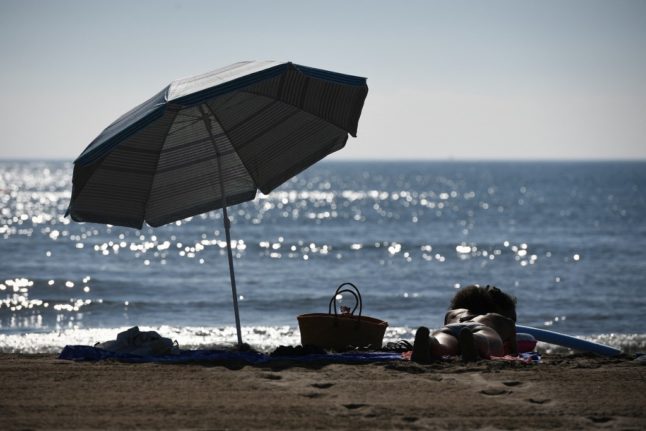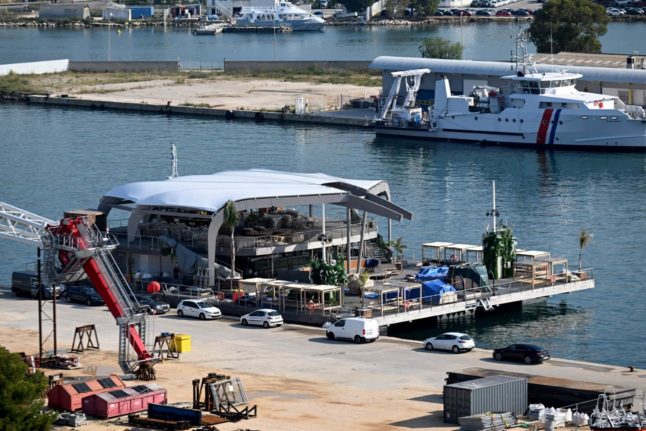France is one of the world’s most popular tourist destinations. In 2022, France welcomed 66.6 million international visitors, and tourists spent at record levels – shelling out over €58 billion, €1.2 billion higher than the pre-pandemic tourist spend.
Despite the tourism rebound, inflation has caused prices to rise, leaving many to wonder whether a trip to France will be out of budget this year.
Overall, inflation in France is expected to stand at an average of 5.5 percent in 2023, before it begins to slow down to 2.5 percent in 2024.
Based on INSEE data, consumer prices rose by 5.1 percent when comparing May 2023 and May 2022 – meaning that travel in France this summer will likely be more expensive than last year, but certain things are more impacted than others.
Accommodation
Naturally, prices vary according to where you go, but price differences vary too – according to Tour magazine some places less expensive than they were in 2019 – for example in Lille prices are 9 percent down on pre-pandemic levels.
However, both Paris and Lyon were almost a third more expensive than prior to the pandemic.
The head of the office of tourism for Paris, Corinne Menegaux, told AFP that prices for standard hotel stays have “increased by 29 percent in four years”, averaging at €189 per night in 2023.
However, peak season pricing in France’s capital is known to run higher than that – the Trivago hotel business blog estimated that average prices during the summer of 2023 for Paris hotels could be around €295 per night for a double room.
Le Figaro reports that more French tourists are opting for Normandy and Brittany this year, and the private rental website Abritel found that searches for accommodation in these areas rose by 25 percent in 2023.
Xavier Rousselou, a spokesperson for Abritel explained to Le Figaro that “this trend can be explained by inflation and the reduction in household budgets, because prices [in Brittany and Normandy] are 30 to 50 percent cheaper than on the Mediterranean coast.”
Restaurants and food/ drink
In December 2022, almost 6 out of every 10 restaurant owners said they increased their prices that year due to inflation, according to a survey by OpinionWay. Of those restaurant owners, 46 percent said they were already considering having to charge customers more in 2023.
As of May 2023, AFP reported that food inflation was 14.3 percent higher than in May 2022, but that by December it would likely decrease to 7.4 percent.
About three quarters of restaurant owners told OpinionWay that, as of 2022, they expected the average customer would spend somewhere between €15 and €35, with almost half of that group expecting customers to spend between €15 to €20 per person while eating out. Service is included in that price.
READ MORE: ‘We tip less in France than in the US’ – readers reveal who they tip, and how much
According to the French site 60 millions de consommateurs, as of May 2023, three products saw higher than 20 percent price increases when compared with May 2022: sugar and sweeteners (23.2 percent), frozen meat (21.7 percent), and butter and crème fraîche (20.9 percent).
Planes, trains and cars
Fuel costs in France began decreasing in March 2023 and have somewhat stabilised between May and June. As of mid-June, the average cost per litre for SP-98 was €1.93; SP-95 was €1.89; E10 was €1.85 and diesel was about €1.70 per litre, according to Le Figaro.
However, when compared with the summer of 2022, when the fuel rebate of 30-cents-per-litre was applied, the average price of SP-95 fuel was €2.10, which dropped down to €1.80 for consumers with the help of the rebate.
One change has been the cost of tolls on the autoroutes – in February, there was an average increase of 4.75 percent when compared with the year previous. As such, this summer, you may see your toll costs increase slightly while driving in France. You can estimate how much your road trip in France will cost in terms of toll expenses using the website SANEF.
For those travelling by train, average ticket costs have also increased when compared with the summer of 2022. In January, France’s national rail service, citing rising costs due to energy prices, announced that tickets would go up on average nationally by five percent.
If you are travelling by rental car, there may be some relief from summer of 2022. According to Ouest France, while car rental prices were still higher than prior to the pandemic in June 2023, the average cost of a week’s rental – approximately €332 – during peak summer months had gone down by 10 percent when compared with 2022.
And finally, you can expect your long-haul flight to and from France to be more expensive during the summer of 2023.
According to Le Monde, medium-haul flights were up by 39.2 percent, and long-haul flights were up by 43.4 percent in 2023 when compared to May 2022.



 Please whitelist us to continue reading.
Please whitelist us to continue reading.
Member comments